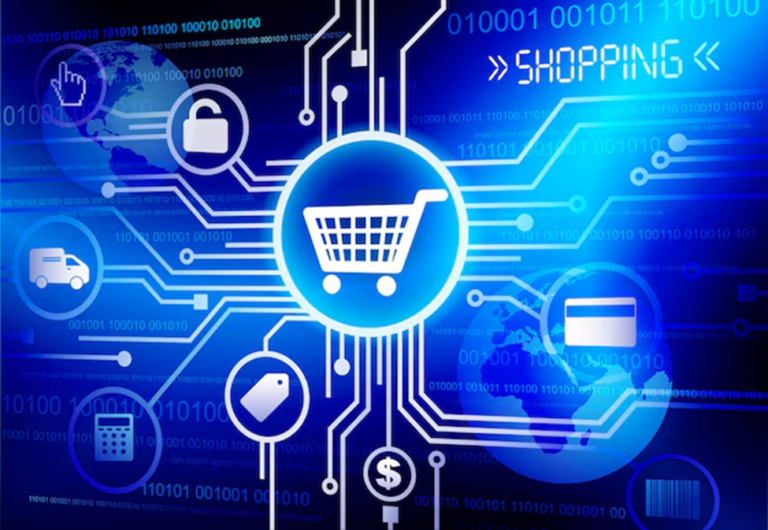How AI is Revolutionizing Business Decision-Making
AI is revolutionizing business decision-making by providing data-driven insights, predictive analytics, and automation. From financial forecasting to customer behaviour analysis, AI enhances strategic planning and improves efficiency. This article explores how AI is revolutionizing business decisions and the best AI tools for decision-making.
Introduction
Businesses today operate in an environment that demands fast, accurate, and strategic decision-making. With increasing data volumes and complex market dynamics, traditional decision-making methods are no longer sufficient to keep up with the competition. Artificial Intelligence (AI) is changing the way businesses make decisions by leveraging data analytics, predictive modelling, and automation to provide real-time, actionable insights.
AI-powered decision-making tools help businesses analyze trends, predict future outcomes, and automate routine decisions. By eliminating human bias and improving data accuracy, AI enables leaders to make informed decisions that drive growth and efficiency. AI is critical to strategic business planning, from supply chain optimization to customer behaviour analysis. This article explores how AI is revolutionizing business decision-making and highlights some of the best AI tools available for making smarter business choices.
The Role of AI in Business Decision-Making
AI enhances decision-making by using advanced data processing techniques, machine learning algorithms, and predictive analytics. Instead of relying solely on intuition or historical data, businesses can use AI-driven insights to anticipate future trends, assess risks, and optimize strategies.
One of AI’s key advantages in decision-making is its ability to analyze vast amounts of structured and unstructured data. Traditional decision-making processes often struggle with information overload, but AI tools can quickly filter, categorize, and extract valuable insights from large datasets. This enables businesses to identify patterns and correlations that would otherwise go unnoticed.
Predictive analytics is another crucial aspect of AI-driven decision-making. AI models use historical data to forecast future events, allowing businesses to plan proactively rather than reactively. For example, AI can predict customer demand, helping retailers optimize inventory levels and reduce waste. In finance, predictive AI can forecast stock market trends and investment risks, improving portfolio management.
AI also automates routine decision-making processes, reducing human error and increasing efficiency. Chatbots, virtual assistants, and AI-driven recommendation engines provide instant solutions based on predefined criteria, freeing up human employees to focus on more complex strategic decisions.
By leveraging AI for business decisions, organizations can make more accurate, data-driven choices that improve performance, reduce risks, and enhance operational efficiency.
AI Tools for Business Decision-Making

IBM Watson – AI-Powered Business Analytics
IBM Watson is one of the most advanced AI platforms for business intelligence and decision-making. It uses machine learning, natural language processing, and predictive analytics to process large datasets and generate actionable insights. Businesses use IBM Watson for risk assessment, customer sentiment analysis, and operational efficiency improvements.
IBM Watson’s AI capabilities help organizations identify trends, detect anomalies, and make data-driven decisions in real time. For industries such as finance, healthcare, and retail, Watson provides predictive analytics that improve decision-making accuracy and enhance business performance.
Tableau – AI for Data Visualization and Decision Support
Tableau is an AI-powered business intelligence tool that helps organizations make sense of complex data through interactive dashboards and visual analytics. It enables businesses to identify key performance indicators, detect trends, and optimize decision-making processes.
By integrating AI-driven analytics, Tableau simplifies data interpretation, allowing business leaders to make informed decisions based on real-time insights. The platform also supports predictive analytics, helping businesses anticipate future trends and improve strategic planning.
H2O.ai – AI for Predictive Analytics and Machine Learning
H2O.ai is a powerful AI tool that enables businesses to develop machine learning models for predictive analytics. It helps organizations forecast market trends, customer behaviour, and financial risks. H2O.ai’s AI-driven algorithms allow companies to automate decision-making processes and optimize business strategies.
Industries such as banking, insurance, and e-commerce use H2O.ai to improve fraud detection, personalize customer experiences, and enhance risk management. Its ability to process large datasets quickly makes it an essential tool for businesses looking to integrate AI into their decision-making frameworks.
How AI is Improving Decision-Making Across Industries

AI in Finance – Smarter Investment and Risk Management
The financial sector relies heavily on AI-driven analytics to optimize investment strategies and manage risks. AI-powered trading algorithms analyze market trends, predict stock movements, and execute trades with precision. Financial institutions use AI to assess creditworthiness, detect fraudulent transactions, and personalized financial services for customers.
Predictive AI models help banks and investment firms forecast economic conditions, allowing them to make data-driven decisions about asset allocation, interest rates, and market opportunities. AI also improves financial planning by analyzing spending patterns and recommending budget adjustments for individuals and businesses.
AI in Retail – Enhancing Customer Experience and Inventory Management
Retail businesses use AI to analyze customer behaviour, personalize shopping experiences, and optimize inventory management. AI-powered recommendation engines, such as those used by Amazon and Netflix, suggest products based on user preferences and past interactions.
AI-driven demand forecasting helps retailers predict which products will be in high demand, reducing overstock and minimizing lost sales due to insufficient inventory. Automated checkout systems and AI-powered customer service chatbots further improve the efficiency of retail operations.
AI in Healthcare – Data-Driven Diagnostics and Treatment Plans
The healthcare industry benefits from AI-driven decision-making tools that assist in medical diagnostics, treatment planning, and patient management. AI-powered algorithms analyze medical images, detect anomalies, and provide highly accurate diagnostic recommendations.
Healthcare providers use AI to predict disease outbreaks, personalize treatment plans, and optimize hospital resource allocation. AI-powered virtual assistants also help doctors and patients by providing medical advice, scheduling appointments, and monitoring health conditions in real-time.
AI in Marketing – Optimizing Campaigns and Targeting Audiences
AI has transformed digital marketing by enabling businesses to create highly targeted and personalized campaigns. AI-driven marketing platforms analyze consumer behaviour, segment audiences, and suggest content strategies that maximize engagement.
Businesses use AI tools like chatbots, email automation, and AI-driven social media analytics to improve customer interactions and enhance brand loyalty. AI also helps marketers measure campaign performance, track customer journeys, and optimize ad spending for better return on investment.
AI in Manufacturing – Process Optimization and Quality Control
Manufacturing companies use AI to optimize production processes, predict equipment failures, and improve quality control. AI-driven predictive maintenance systems analyze sensor data from machines to detect potential issues before they lead to costly breakdowns.
AI-powered robotic automation improves manufacturing efficiency by performing repetitive tasks with precision and consistency. AI also enhances supply chain management by predicting demand fluctuations and optimizing logistics operations.
Challenges of AI in Business Decision-Making

While AI offers numerous benefits for decision-making, there are challenges that businesses must address when implementing AI-powered solutions.
Data privacy and security concerns remain a significant challenge, as AI relies on vast amounts of data to generate insights. Businesses must ensure compliance with data protection regulations and implement strong security measures to prevent breaches.
Another challenge is AI bias, which can arise when AI algorithms learn from biased datasets. Businesses need to continuously monitor AI models to ensure fairness and eliminate biases in decision-making.
Additionally, AI implementation requires skilled professionals who understand data science, machine learning, and AI ethics. Companies must invest in training and upskilling their workforce to leverage AI-driven decision-making capabilities fully.
The Future of AI in Business Decision-Making

As AI technology continues to evolve, its role in business decision-making will become even more significant. AI-powered virtual assistants will provide real-time decision support, making recommendations based on contextual data.
The rise of explainable AI (XAI) will improve transparency in AI-driven decisions, allowing businesses to understand and trust AI-generated insights. AI will also integrate with emerging technologies such as blockchain and the Internet of Things (IoT) to enhance decision-making capabilities.
AI’s ability to analyze data, predict outcomes, and automate processes will make it an essential tool for businesses looking to remain competitive in the digital age. Organizations that embrace AI-driven decision-making will be better equipped to navigate market uncertainties, optimize operations, and drive sustainable growth.
Conclusion
AI is revolutionizing business decision-making by providing predictive insights, automating routine tasks, and enhancing strategic planning. From financial forecasting and customer analytics to supply chain optimization and marketing automation, AI-driven tools transform businesses’ operations.
Companies can make data-driven decisions that improve efficiency and profitability by leveraging AI-powered business intelligence platforms such as IBM Watson, Tableau, and H2O.ai. While challenges like AI bias and data security remain, businesses that adopt AI responsibly will gain a significant competitive advantage in the years to come. As AI technology continues to advance, its role in decision-making will only grow, shaping the future of business strategy and innovation.







